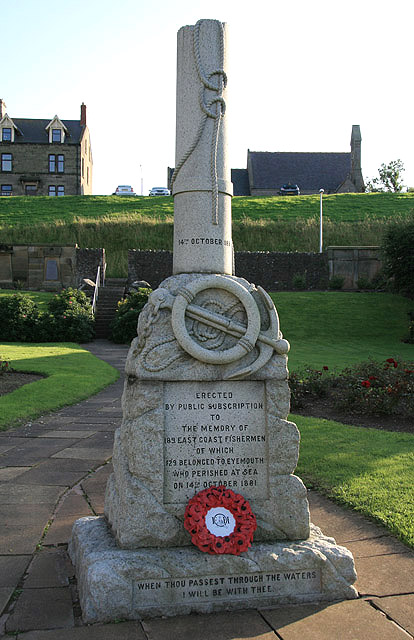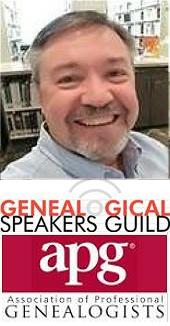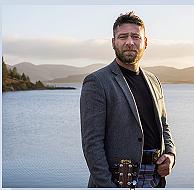Society News
.jpg) The Society was saddened to learn of the death of Mel Fleming, a regular attendee of CSA meetings over the years and someone who was proud and passionate about his Scottish heritage. The Society was saddened to learn of the death of Mel Fleming, a regular attendee of CSA meetings over the years and someone who was proud and passionate about his Scottish heritage.
Mel, 62, was a well-known character. As well as his love for and membership of the Caledonian Society, Mel often helped at the front gate at our Games, for many years he was a regular participant at the Arizona Renaissance Festival.
Mel’s presence at Society meetings will be sorely missed, and we extend our sympathy to his family and friends.
With the virus showing little sign of abating, certainly in Arizona, it looks like we won’t be meeting as a Society any time soon.
Many of the venues we would normally have visited, including the Irish Cultural Center and our bar haunts, are closed for the time being. The Scottish-themed brewery, Lochiel,
Hopefully when the situation improves we will get back into the swing of things.
|
President's Letter
David McBee, President
.jpg) We held a virtual Board of Directors meeting on June 8th. At that Meeting, the current Board members agreed to serve for another 12 month term. If there are any objections to this plan and you are a Member-in-good-Standing (2020 dues paid), please send an email to: membership@arizonascots.com
If those negative replies constitute a majority of paid members, an election will be called.
We held a virtual Board of Directors meeting on June 8th. At that Meeting, the current Board members agreed to serve for another 12 month term. If there are any objections to this plan and you are a Member-in-good-Standing (2020 dues paid), please send an email to: membership@arizonascots.com
If those negative replies constitute a majority of paid members, an election will be called.
One of the current Trustees, Robert Wilbanks IV cannot continue and has resigned. Former Treasurer Vicki Phegley is returning to the Board in that same position.
The following positions are open: Secretary, and Trustee.
If you are interested in serving in one of those offices, please send your resume and a brief synopsis of your involvement with the Scottish community to David McBee at: President@arizonascots.com
The Irish Cultural Center has re-opened some meeting rooms on an approval basis. However, with the current demographics of our group, I doubt there is much interest in traveling downtown to meet in person. I am not sure of the ability of an online meeting to work for the general membership but if someone knows how, we could give that a try soon.
We are still trying to finalize the promised sponsor funds from this year’s games, and then begin negotiations for next year’s event, if it can be held. We have to get some cost relief to continue this as a going concern. All contracts are up for renegotiation and the economy is a real wildcard this time. We will keep you posted but the object is to keep commitments as soft as possible as long as possible to see how this current mess unwinds.
Stay safe at your own pace and be as happy as you can be. Whisky and pastries may just be the answer….
SLAINTE, DAVID |
Sarah Noble and James McCoy
.jpg) One of the best-known local musicians associated with the Society is returning to the Valley this week after a two-year ‘exile’ in Nevada. Sarah Noble is one of the stalwarts of the annual Scottish Games and a familiar figure in the Arizona Celtic music scene. One of the best-known local musicians associated with the Society is returning to the Valley this week after a two-year ‘exile’ in Nevada. Sarah Noble is one of the stalwarts of the annual Scottish Games and a familiar figure in the Arizona Celtic music scene.
She and her partner James McCoy, a fellow musician, started a new life in Elko, Nevada, but the pandemic has led to limited opportunities, and she admits to a feeling of ‘homesickness’ for Phoenix. Sarah spoke this week of her enthusiasm at returning.
“Over 15 years in Phoenix, I was fortunate enough to meet ‘the right people’ who helped me grow as a singer, performer, director and MC. I became very engaged in the Phoenix Celtic community - learning to embrace my Celtic heritage through music and culture
“James and I have been building our music portfolio and marketing ourselves as a duo (also available as a trio), Noble McCoy Band. We pride ourselves on playing obscure Celtic/Americana folk music, classic pop and blues. James is a talented and skilled musician; he has really brought me a long way to be a better singer.
.jpg) “We have worked hard to get the Celtic collection perfect for our performances at the Phoenix Scottish Games and local pubs for St. Paddy's Day. Not to be biased but I LOVE working with the Caledonian Society of Arizona. For the past eight years, I have performed and been the MC for several tents and I look forward to being involved with the Games EVERY year.
“We have worked hard to get the Celtic collection perfect for our performances at the Phoenix Scottish Games and local pubs for St. Paddy's Day. Not to be biased but I LOVE working with the Caledonian Society of Arizona. For the past eight years, I have performed and been the MC for several tents and I look forward to being involved with the Games EVERY year.
“The members and everyone involved are down to earth, know how to conduct business successfully, really delve into their Scottish culture and know how to plan a really great party (aka the Games) and work together. The 2020 Games was a success in our book. I was also very honored to host the March of the Clans- it was a wonderful experience.”
Noble McCoy Band is available for pub gigs, private parties, weddings, holiday parties, etc. They can be found on Facebook at www.facebook.com/NobleMcCoyBand or by email at NobleMcCoyBand@gmail.com
|
|
Scotland's Hidden Gems - the Eyemouth Disaster Memorial
Iain Lundy, Editor
There are memorials dotted all over Scotland – but few are as poignant as the simple granite memorial in the Berwickshire fishing port of Eyemouth, six miles north of the English border. It commemorates what is known throughout Scotland as the Eyemouth Disaster.
On the morning of 14 October 1881, the majority of Scotland’s North Sea fishing fleet had abandoned plans to sail. The forecast was for a deadly European cyclone with hurricane force winds, a weather phenomenon for which the wooden fishing boats would be no match.
.jpg)
But in Eyemouth and other nearby ports, the men ignored the weather warnings and set out to sea at the crack of dawn. Hours later the horrendous weather conditions were tossing their tiny vessels around like matchboxes. Some reached shelter but most never made it. Their vessels either overturned or were dashed on the Hurkar Rocks at the entrance to Eyemouth harbour.
Hysterical women and children looked on helplessly as their menfolk were thrown overboard and swallowed up by the sea only yards away. The scenes at Eyemouth that day were truly awful. Women screamed and fainted, children watched as their fathers drowned before their eyes.
By the time the wind subsided a total of 189 men had perished, 129 of them from Eyemouth alone. The deadly storm had left 93 women as widows and 267 children without their fathers. Of 45 boats which had gone to sea, only 26 had returned. It was the worst fishing tragedy in British history. In Eyemouth it has been known since as "Black Friday."
The reason the skippers ignored the weather was the result of a bitter and often violent dispute between the town’s fishing community and the Church of Scotland. The Church had demanded that Eyemouth skippers pay tithes - or one-tenth of their income - to the local minister. The men who sailed to their deaths that day were not stupid or foolhardy, they were desperate.
 Today a granite memorial at the Eyemouth seafront commemorates the tragedy. Today a granite memorial at the Eyemouth seafront commemorates the tragedy.
The event is still the worst disaster to befall a fishing community anywhere in the United Kingdom.
|
|
Research Your Scottish Ancestry
|
|
 Scots in the American Revolution Scots in the American Revolution
by Robert M. Wilbanks IV, B.A.
Chief Genealogist & Historian, C.S.A.
genealogy@arizonascots.com
Scottish settlement in North America began during the Colonial period as early as the 1630s, with notable large migrations in the 1640s and the late 1740s. Meanwhile, between 1717 and 1775, an estimated 200,000 Ulster-Scots (Scots-Irish or Scotch-Irish) immigrated to North America. The Ulster-Scots were descendants of Lowland Scots and Northern English who settled in the Province of Ulster in Northern Ireland during the “Plantation of Ulster” in the very early 1600s.
The influence of the Scottish and Ulster-Scots is found in many aspects of early American history and culture, such as explorers, traders, music, food, literature, soldiers and statesmen. Meanwhile, the age of Scottish Enlightenment contributed significantly to the early colonial American education, intellectual pursuits, art, science, economics and particularly the philosophies of man, government, sharing a humanist and rationalist outlook on society. While many of the American Founding Fathers had direct connections to Scotland, others were greatly influenced by these teachings of the Scottish Enlightenment.
John Witherspoon and James Wilson were the only Scots to sign the Declaration of Independence, while several other signers had Scottish ancestry. Other Scottish American Founding Fathers included Commodore John Paul Jones, “Father of the American Navy”, Generals Henry Knox and William Alexander, and Hugh Mercer, a soldier under “Bonnie Prince Charlie” at the Battle of Culloden. James Craik, the first Surgeon General, was born in Dumfriesshire. And Patrick Henry’s father was from Aberdeenshire. Nine of the thirteen colonial governors at this time were Scotsmen.
At the time of the American Revolution, the Scotch-Irish are the most notable settlers in the Southern States, and were the core of illegal settlers west of the Proclamation Line, in the Ohio, Kentucky and Tennessee Valleys, with names like Jackson, Boone, Crocket, Calhoun, Clinton, Matthews, McDowell, McClellan and many more. Many of these western settlers were drawn into the rebellion as the war spread into the western frontier. Meanwhile, many plantations and independent farms in the back country of Virginia, Maryland and the Carolinas had been financed with Scottish credit, creating a great deal of farmers deep in debt. This incentivized many to fight for separation from England.
Meanwhile, many Scottish Americans with very successful commercial ties to the old country, or bound by clan allegiances, chose to stay true to the crown. The Scottish Highland populations of upstate New York, and the Cape Fear Valley of North Carolina, were centers of Loyalist resistance to the rebellion. A small force of Loyalist Highlanders fell at the Battle of Moore’s Creek Bridge in 1776, and another band of Scottish American Loyalists were defeated by Scots-Irish Patriots at the Battle of Kings Mountain in 1780. Many of these Scottish American Loyalists emigrated to Canada after the war.
This FamilySearch wiki page on Loyalists in the Revolutionary War identifies numerous resources for Loyalist family history research. The FamilySearch wiki also has a page on Finding Your Revolutionary War Ancestor, and more about, and resources related to, the Revolutionary War. Meanwhile, here is the fundamental page about United States Military Records, another page on Scotland Military Records, and a page dedicated to British Military Records Online.
This is another of a series of articles in which I show you the basics of searching for your family history, discussing the use of family records, public records, and online resources nationally and internationally, etc. The previous articles are now available on the Genealogy Section of this website. See “Genealogy” in the menu options at the top of the web page.
|
Scots and the Apache War
Iain Lundy
|
|
Scots came to the American southwest long before Arizona gained statehood. Many were pioneer miners and prospectors and some even joined the rag tag collection of cowboys that constituted the ‘Wild West’.
Others joined the US Army and, in some cases at least, covered themselves in glory. Two, and perhaps more, Scottish soldiers distinguished themselves as fighting men in what was then the Arizona Territory that they received medals from the government as a tribute to their bravery.
John Thompson was born in Glasgow in 1842 but grew restless in his native land and emigrated as a young man to America. He enlisted as a private in the US Army in Chicago, joined the 1st US Cavalry Regiment, and by the late 1800s was fighting in the Apache Wars which were raging throughout the southwest.
Thompson and his comrades were stationed at Fort Bowie, a now derelict camp near what is known as Apache Pass. His moment of glory came on 20 October 1869 in battle against the Apache in the Chiricahua Mountains. For his bravery in action he was awarded the Congressional Medal of Honor.
.jpg)
James Lawrence, from Aberdeen, fought with distinction in the same conflict. He signed up with the US Army in Sacramento, California, and became a Private in Company B of the 8th US Cavalry. During the 1860s he saw action in various parts of the southwest including Arizona and New Mexico.
Lawrence was also awarded the Congressional Medal of Honor for his actions near Arizona’s Black Mountains between August and October 1868. His citation read, ‘Bravery in scouts and action against Indians.’
|
|
Scottish Linguistic Mysteries
Iain Lundy, Editor
|
|
Have you ever been to Scotland and heard the natives using words and expressions that sound like gobbledygook? Words such as ‘scunnered’ and ‘glaikit’. As they say in Scotland, trying to make sense of it all can ‘do yir heid in’.
 A new book by prominent singer/songwriter Jamie McGeechan, who is also an ambassador for the American-Scottish Foundation, might go some way to help you unravel Scotland’s linguistic mysteries. Jamie performs under the name Little Fire, and is known for his interpretations of folk songs, including the works of Robert Burns. A new book by prominent singer/songwriter Jamie McGeechan, who is also an ambassador for the American-Scottish Foundation, might go some way to help you unravel Scotland’s linguistic mysteries. Jamie performs under the name Little Fire, and is known for his interpretations of folk songs, including the works of Robert Burns.
The book, called Glaikit, is a collection of his own poetry but it contains marvelous examples of old Scots words and phrases. Here are a few.
Dreich – a common Scottish word to describe weather on a dull, dreary day.
Scunnered – disgusted; plain fed up with the world.
Braw – grand, fine, tasty. Totally awesome in America would be braw in Scotland.
Nyaff – an unpleasant or troublesome young man - never big, always wee.
Ken – to know; Kent is the past tense, not a county in England.
Mair – more, often preceded by the word gies, meaning give me.
Glaikit – a daft and gormless character, sometimes ‘no’ the full shilling’
Jamie now lives in St Louis and the book can be found online.
|
|
Yet More Highland Games canceled throughout the world
Mark Pelletier, VP Administration
Scottish Highland Games and Festivals continue to be canceled throughout North America.
One Hundred events have been canceled since March 14 through July. And forty events in August to November are alrady canceled, with now only about two dozen still scheduled as of July 1.
Looking at Scotland, the situation is just as bad, with only a handful of events remain scheduled through the end of their season in early Septmeber.
|
|
Membership Notice
All Memberships now run from April 1, 2020 to March 31, 2021.
Membership dues for 2020-2021 are:
- - $30.00 single and $50.00 Family (at the same address)
It's easy - just jump to the Membership Page for information.
Society Gatherings
Gatherings have been suspended due to the COVID-19 situation. Watch for information when government guidelines change.
|
|
|
|